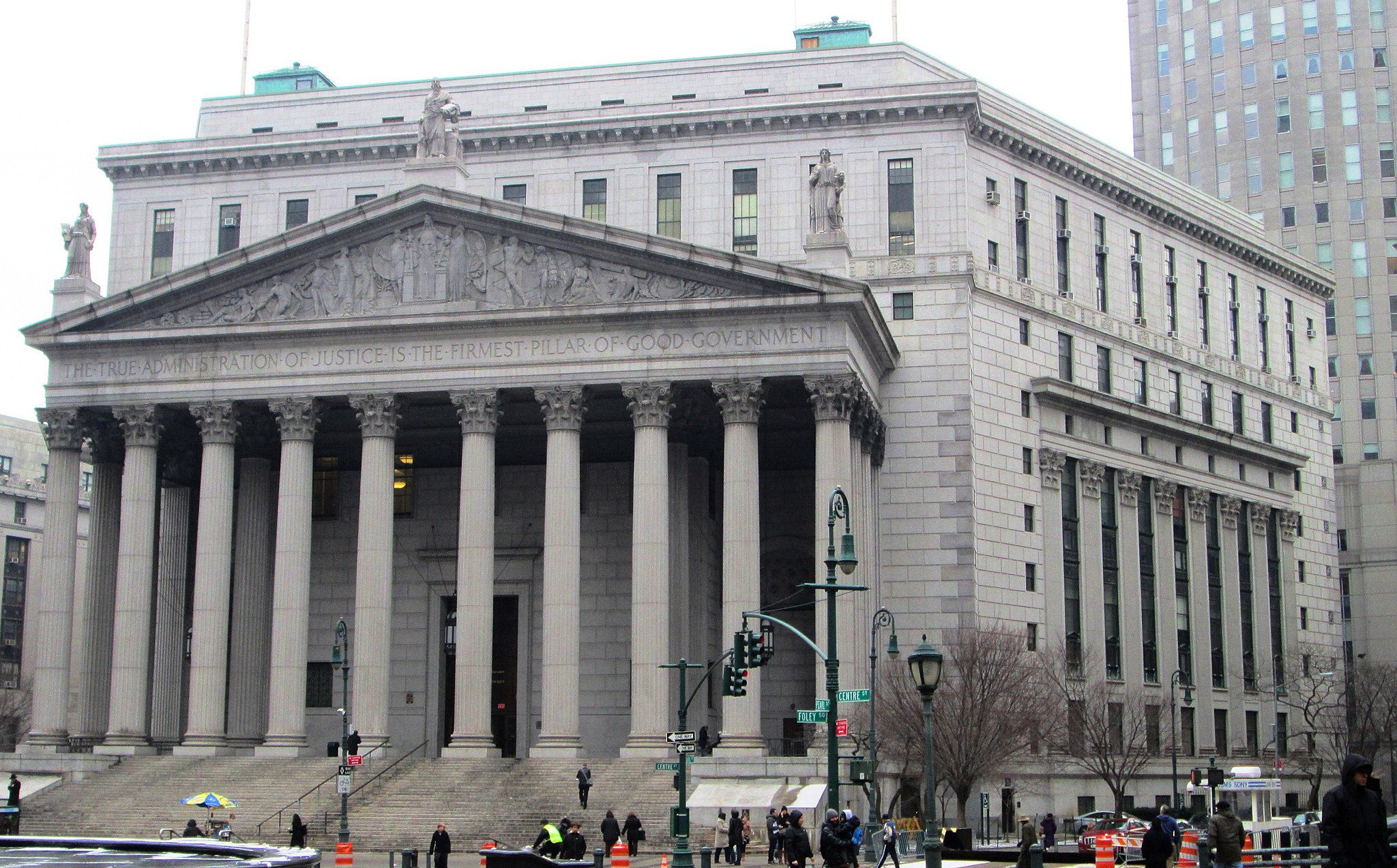Today's Headlines and Commentary
Pope Francis met with Aung San Suu Kyi, Myanmar’s civilian leader, and failed to explicitly denounce Myanmar’s campaign of violence against Rohingya Muslims, the New York Times reported.
Published by The Lawfare Institute
in Cooperation With

Pope Francis met with Aung San Suu Kyi, Myanmar’s civilian leader, and failed to explicitly denounce Myanmar’s campaign of violence against Rohingya Muslims, the New York Times reported. At a press conference in Naypyidaw, the pope avoided using the word “Rohingya.” Myanmar’s government does not consider the Rohingya to be an independent ethnic group. Francis was has come under pressure from human rights organizations to condemn the campaign of atrocities that Myanmar’s military has inflicted on Rohingya civilian populations. The campaign of killings, mass rape and burning villages has displaced over 600,000 people since August.
South Korea’s government said North Korea is aiming at testing a nuclear-armed intercontinental ballistic missile by next year, the Times reported. South Korea has observed North Korean missile engine and fuel tests over the last few weeks, suggesting preparations for resumed missile testing. The last test from Pyongyang was on Sept. 15. A South Korean government official said the North traditionally conducts fewer tests in winter.
Reza Zarrab, a Turkish-Iranian businessman, agreed to cooperate with federal prosecutors in New York investigating a wide-ranging conspiracy to violate U.S. sanctions on Iran, the AP reported. Zarrab pleaded guilty to charges related to evading Iran sanctions and will testify against his former colleague, a Turkish banker. The case has attracted significant attention in Turkey for its connections to corruption in the Turkish government. Turkish President Recep Tayyip Erdogan has called for Zarrab’s release. Zarrab’s guilty plea could cause tension between the U.S. and Turkey.
Michael Flynn’s lawyer met with Special Counsel Robert Mueller’s team on Monday, providing more evidence to believe Flynn is discussing a plea deal, ABC News reported. Last week, Flynn’s legal team informed the president’s lawyers that they could no longer discuss the Russia investigation with them. Both incidents are signs that Flynn is negotiating with the special counsel to provide evidence of wrongdoing by others—potentially including senior administration figures—to the investigation.
U.N. peace talks between the Syrian government and opposition forces resumed on Tuesday in Geneva, Agence France-Presse reported. Opposition forces agreed for the first time to negotiate as a unified delegation. They said Syria’s president Bashar al-Assad must leave power as part of any peace agreement. The Syrian government obtained prior assurances from the U.N. peace envoy for Syria that the talks would not discuss Assad’s ouster.
Russia denied that its airstrikes on Syrian villages held by the Islamic State killed civilians, according to the BBC. Non-governmental human rights observers said Russian strikes killed 25 to 53 people in the village of al-Shafah. Russia’s defense ministry denied that its warplanes had hit the village, saying Russian forces only target “areas outside population centers.”
Violence continued as Uhuru Kenyatta was sworn in for his second term as Kenya’s president, the AP reported. Police in Nairobi shot tear gas to break up protests from leading opposition figure Raila Odinga’s supporters. Kenyatta won re-election after two rounds of voting that his political opposition called unfair and illegitimate.
Greek police seized bomb-making equipment and were questioning nine individuals about their links to a banned Turkish militant group ahead of an expected visit by Turkish President Erdogan to Athens, Reuters reported. Police said they found detonators at three separate addresses in Athens. They said they were questioning nine Turkish individuals about their connections to the militant group DHKP/C, which Turkey’s government blames for a series of bombings in Turkey over the past two decades. Erdogan is widely expected to visit Athens in December, the first such visit by a Turkish president to Greece in 50 years.
The Pentagon said a Russian fighter jet’s intercept of a U.S. Navy plane over the Black Sea was “unsafe,” CNN reported. The Russian Su-30 fighter crossed in front of a U.S. P-8A aircraft flying in international airspace, forcing it to make an emergency roll. A Pentagon spokesperson said the Russian action was unprovoked and dangerous.
Federal prosecutors indicted three employees at an internet security firm in China for stealing hundreds of gigabytes of data from Siemens, Moody’s Analytics and the GPS company Trimble, Ars Technica reported. An unsealed indictment filed in September charged the three men with using spear-phishing to gain unauthorized access to the companies’ networks and with using malware to exfiltrate valuable corporate data. Prosecutors said the trio’s company acted as a front linked to the hacking group known as APT 3. The U.S. and China agreed in 2015 to refrain from using hacking to conduct economic espionage.
Politico’s Susan Glasser interviewed Kurt Volker, the special envoy charged with resolving the conflict in Ukraine, about the Trump administration’s Russia policy.
ICYMI: Yesterday on Lawfare
Matthew Kahn explained the main provisions of the Federal Vacancies Reform Act and how it affects acting officials currently serving in the administration.
Orin Kerr argued that Microsoft should have challenged the All Writs Act instead of the Stored Communications Act in U.S. v. Microsoft.
Kendall Howell analyzed how the Fifth Amendment applies to law enforcement demands to decrypt devices using passwords and biometrics.
Megan Reiss discussed how new sanctions on an Iranian counterfeiting operation could have implications for Iran’s wider strategy in Yemen’s civil war.
Stewart Baker shared the Cyberlaw Podcast, featuring an interview with Rob Reid about bioterrorism and artificial intelligence.
Email the Roundup Team noteworthy law and security-related articles to include, and follow us on Twitter and Facebook for additional commentary on these issues. Sign up to receive Lawfare in your inbox. Visit our Events Calendar to learn about upcoming national security events, and check out relevant job openings on our Job Board.


.jpg?sfvrsn=31a7c788_5)


